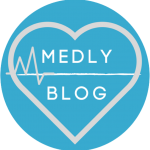I had the privilege of attending this year’s Health Awareness Day (HAD) organised by the Korean UK Medical Association (KUMA). This is a renowned, annual community outreach day comprising of presentations on common health conditions as well as health booths set up for general health check-up measures (blood pressure, blood glucose, otoscopy checks and other observations). This event is primarily directed for the senior citizens of New Malden, an area of South London well-known for its highly concentrated South Korean population. Due to restrictions brought by the pandemic, this event had been cancelled for the previous two years, however it was able to make a comeback this year, on the 28th of May 2022.
Before the main event, KUMA organised a series of academic seminars for medical students and junior doctors, with talks given by doctors on different training and speciality programmes. The talks on foundation training and the academic training pathway especially enabled us to gain a wealth of information regarding what each training pathway entailed and to obtain a good insight into the realities of life as a junior doctor. This was valuable as we got a realistic glimpse into what life beyond medical school would look like. Furthermore, a CV clinic was held following the presentations which strongly highlighted the importance of CV building, and more significantly what we can do now, as medical students, to stand in good stead as we progress in our careers. Building your portfolio is often not extensively covered by medical schools, and especially at my stage, it can appear very daunting. Thus, being able to gain advice first-hand, from doctors themselves, I found incredibly useful. The information provided was catered to our individual level and was highly personalised to our needs and interests. It was a safe environment whereby students felt comfortable to ask whatever questions without the fear of judgement, on topics often shied away in medical school. And to conclude this seminar, there were clinical skills stations covering ultrasound and suturing. This was a great way to end the session as it showcased the interactive and hands-on element of medicine and served as a great opportunity to hone-in on these clinical skills, under the supervision of highly knowledgeable and talented doctors.
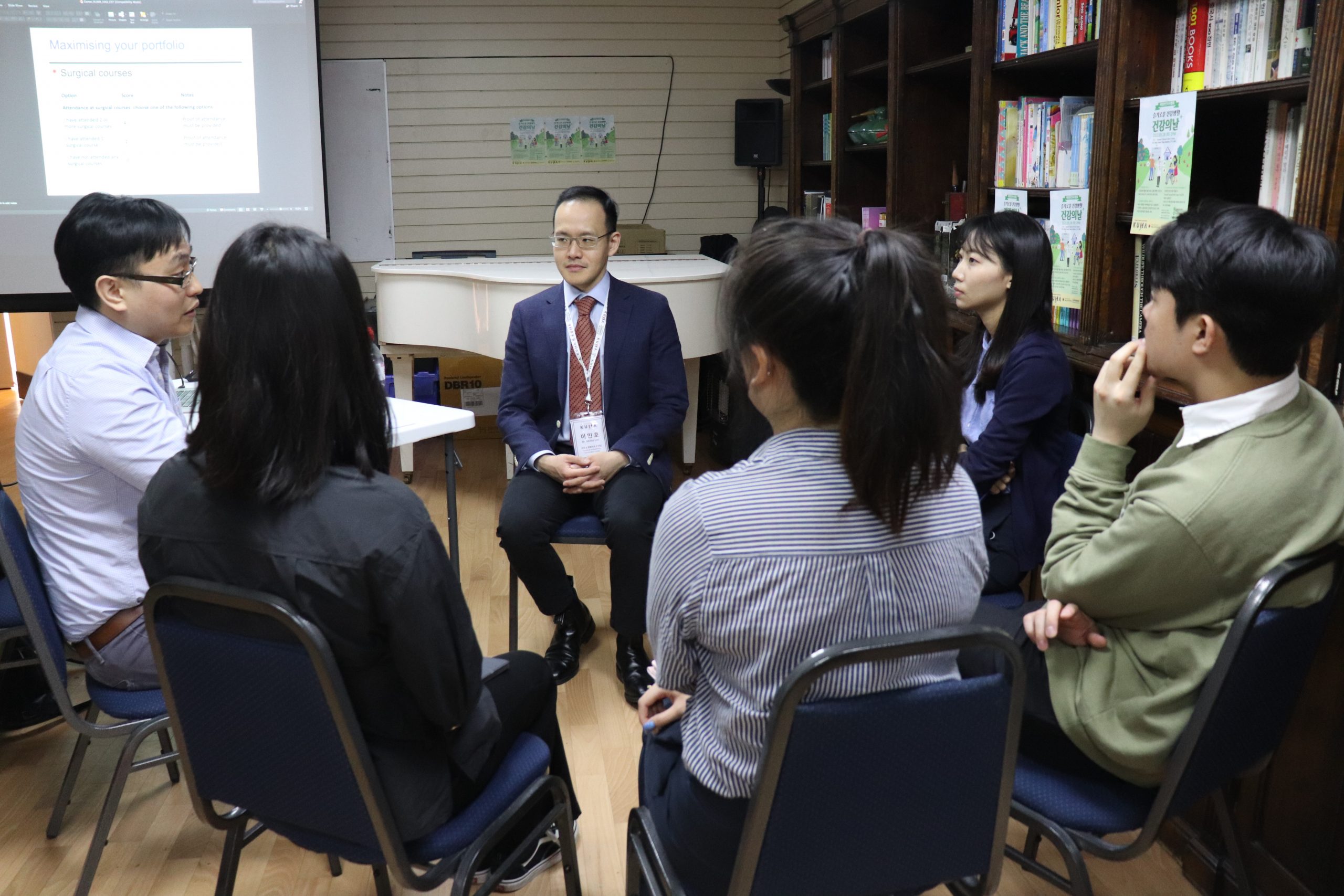
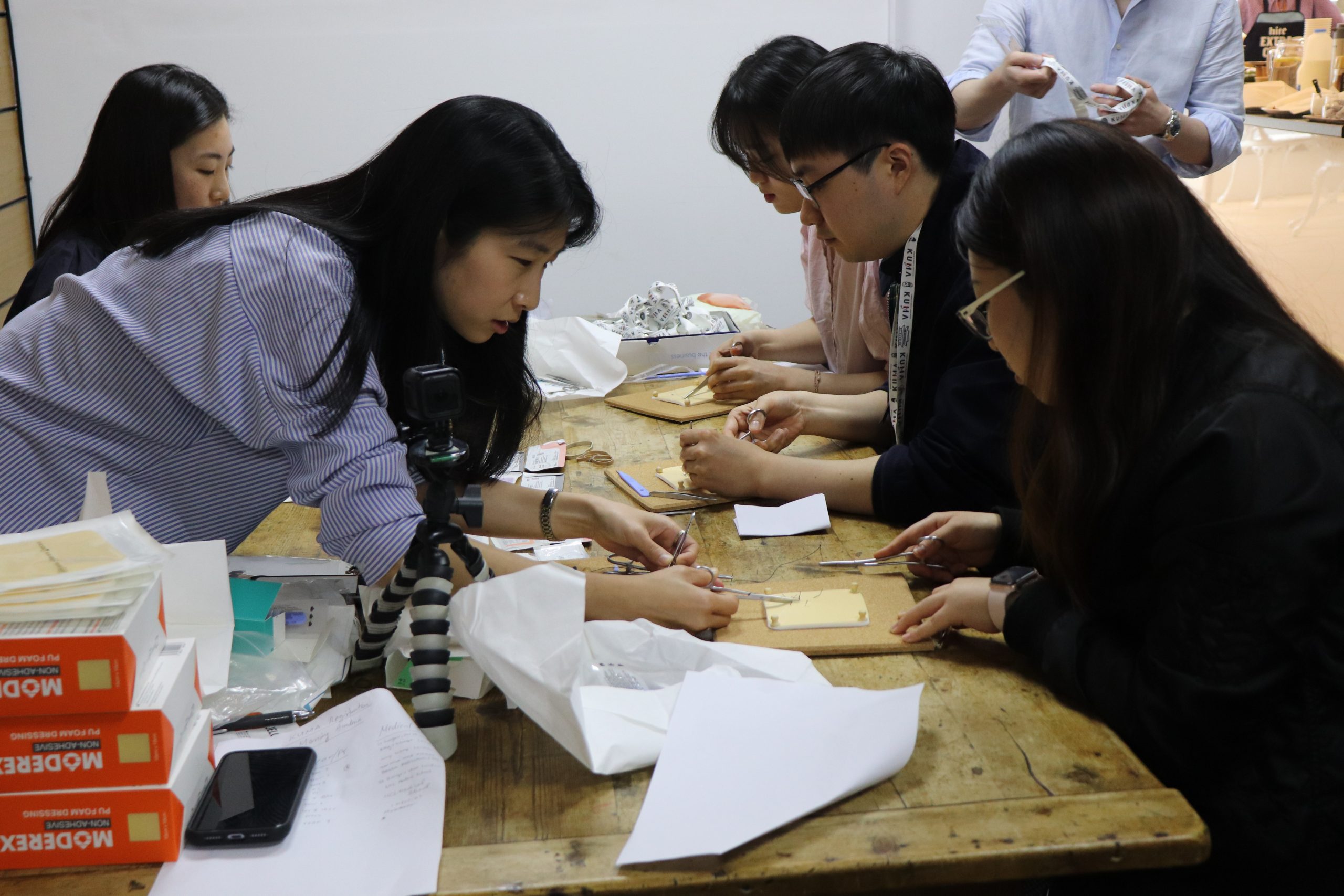
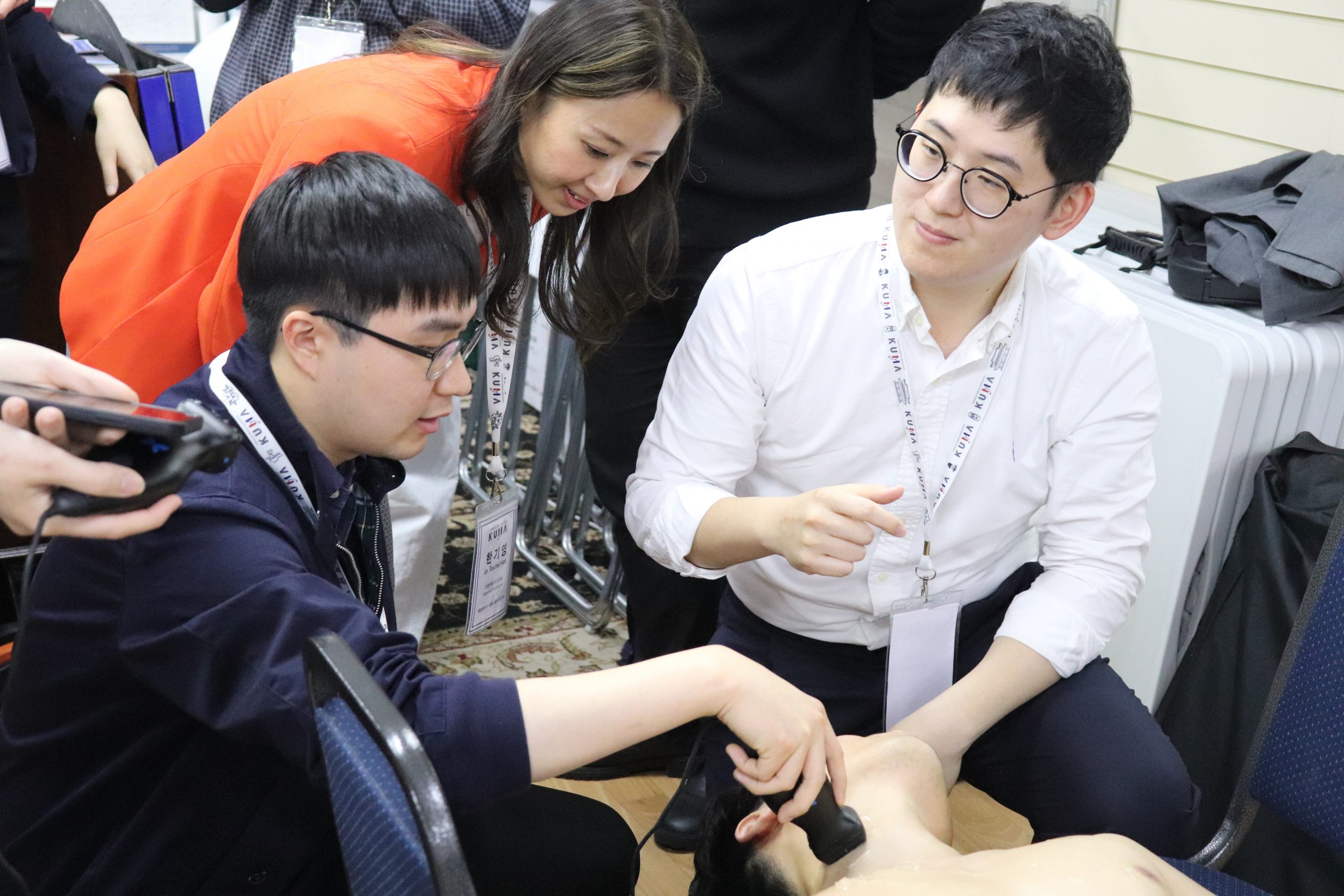
Sharing conversation over good food provided a great sense of union and celebration of the culture, which as Koreans, we are very proud of.
In the interval following the academic seminar, free lunch was provided for all participants. An array of delicious Korean food was provided by members of the community. The concept of sharing conversation over good food is an intrinsic element of Korean culture, therefore, this helped provide a great sense of union and celebration of the culture, which as Koreans, we are very proud of.
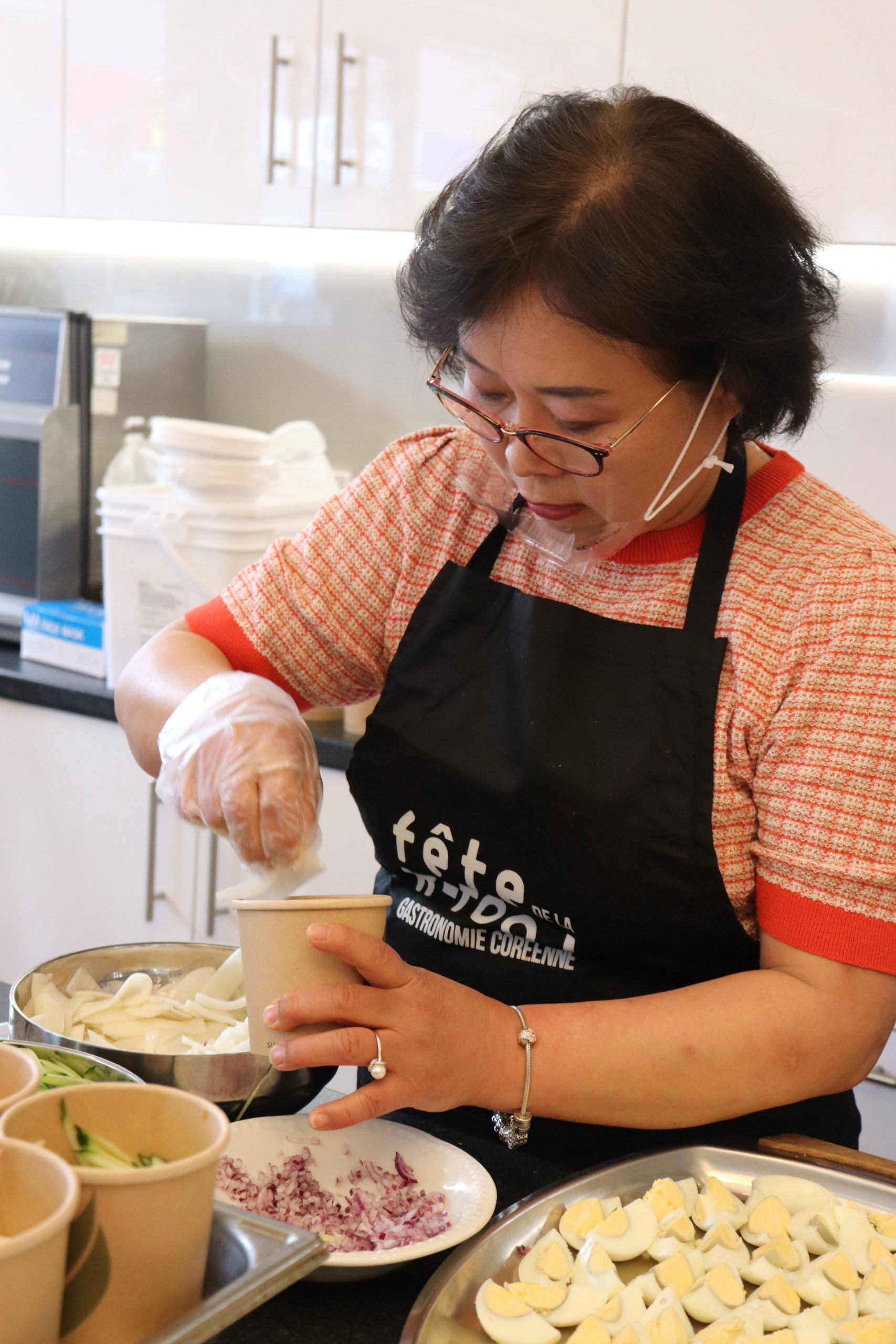
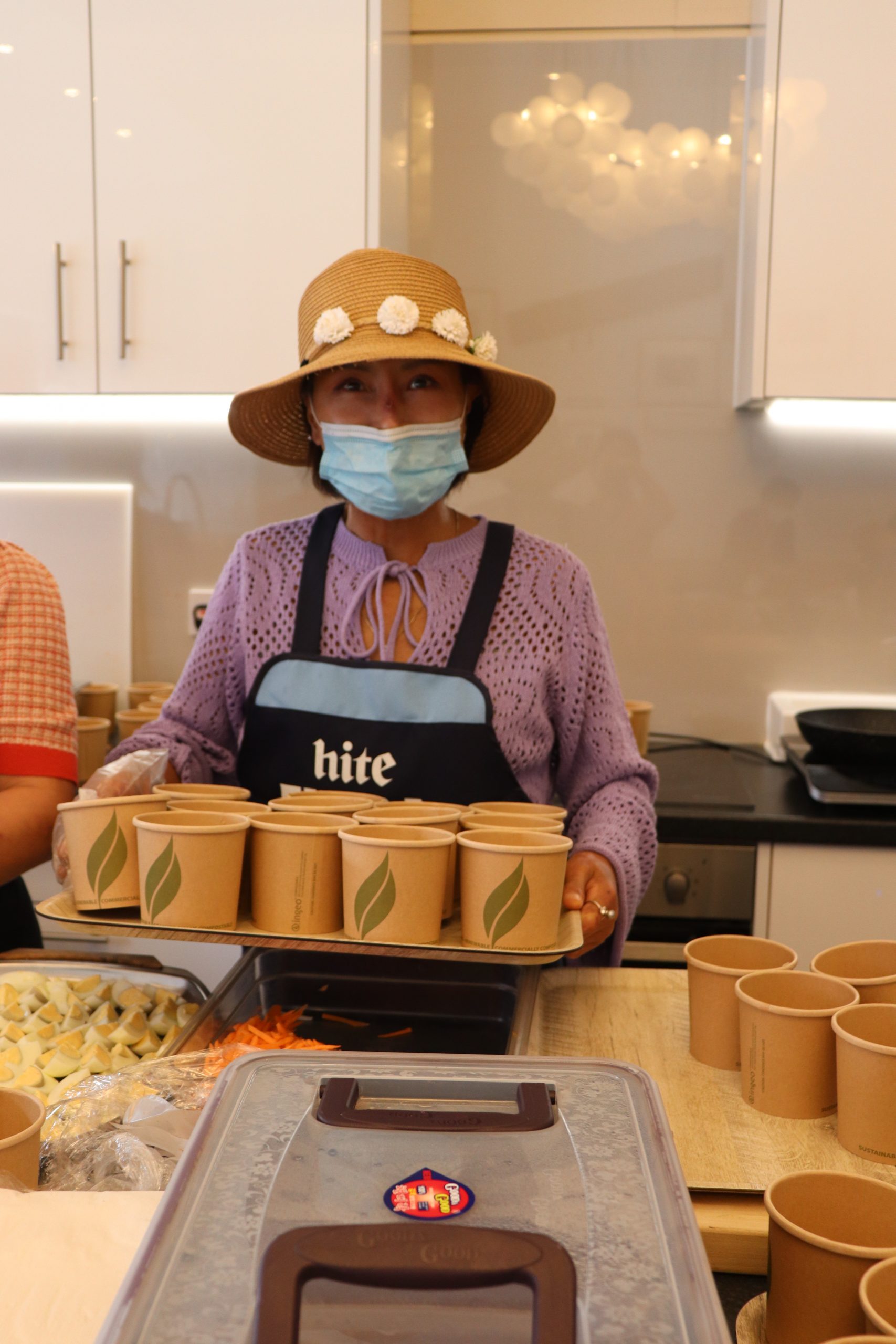
To kick start the afternoon session, numerous talks were held by doctors, including specialist consultants on common health conditions. Although we were not necessarily able to participate ourselves, I imagine this would have been an invaluable resource to many of the elderly population in the audience. There are multiple obstacles posed upon the older Korean generation with regards to accessing health services, including language barriers and other bio-psychosocial factors influencing health-seeking behaviours. Consequently, these presentations on different health conditions hopefully were able to tackle some of these barriers, as they were held in Korean and were aimed to address and cover the participants’ concerns and queries.
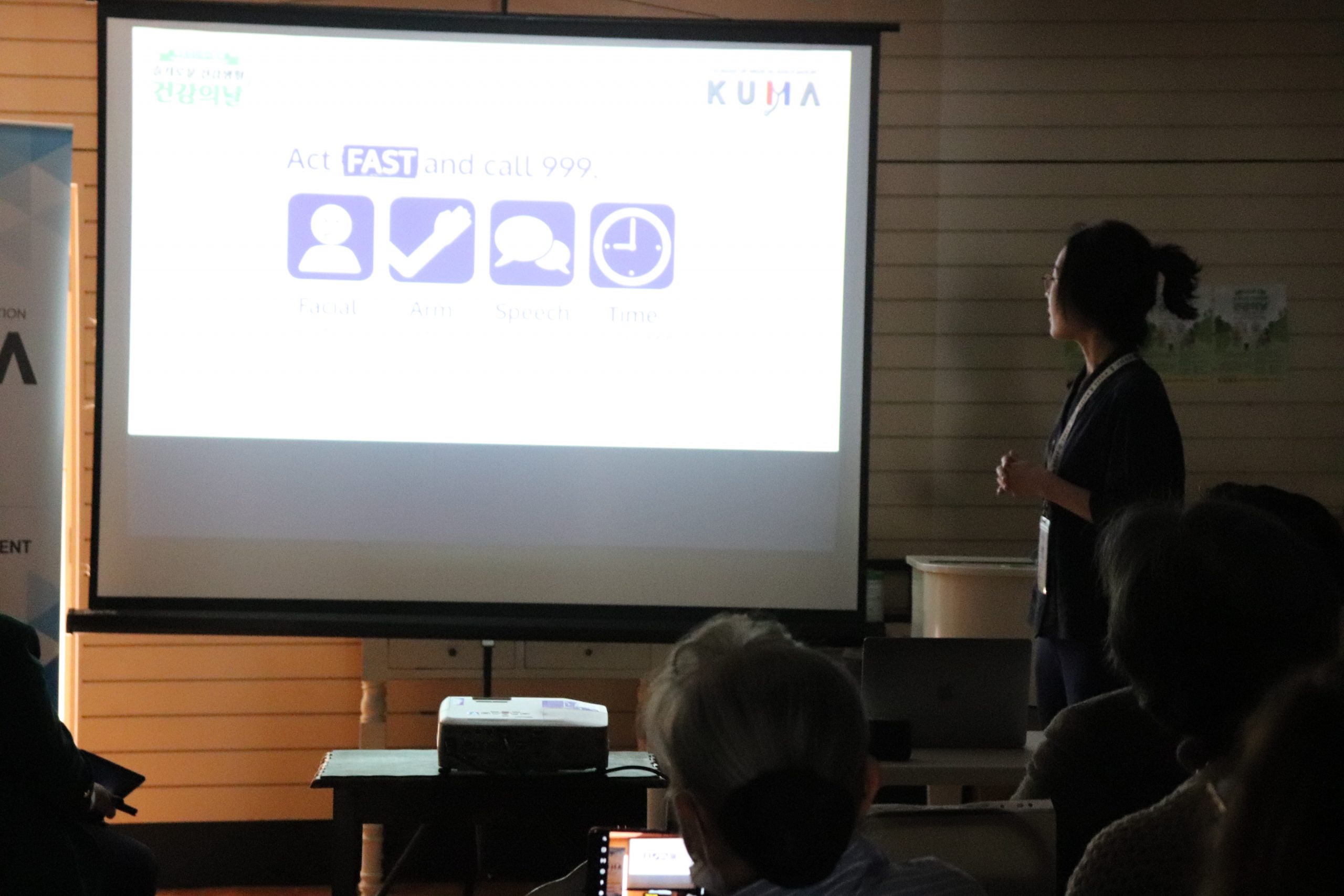
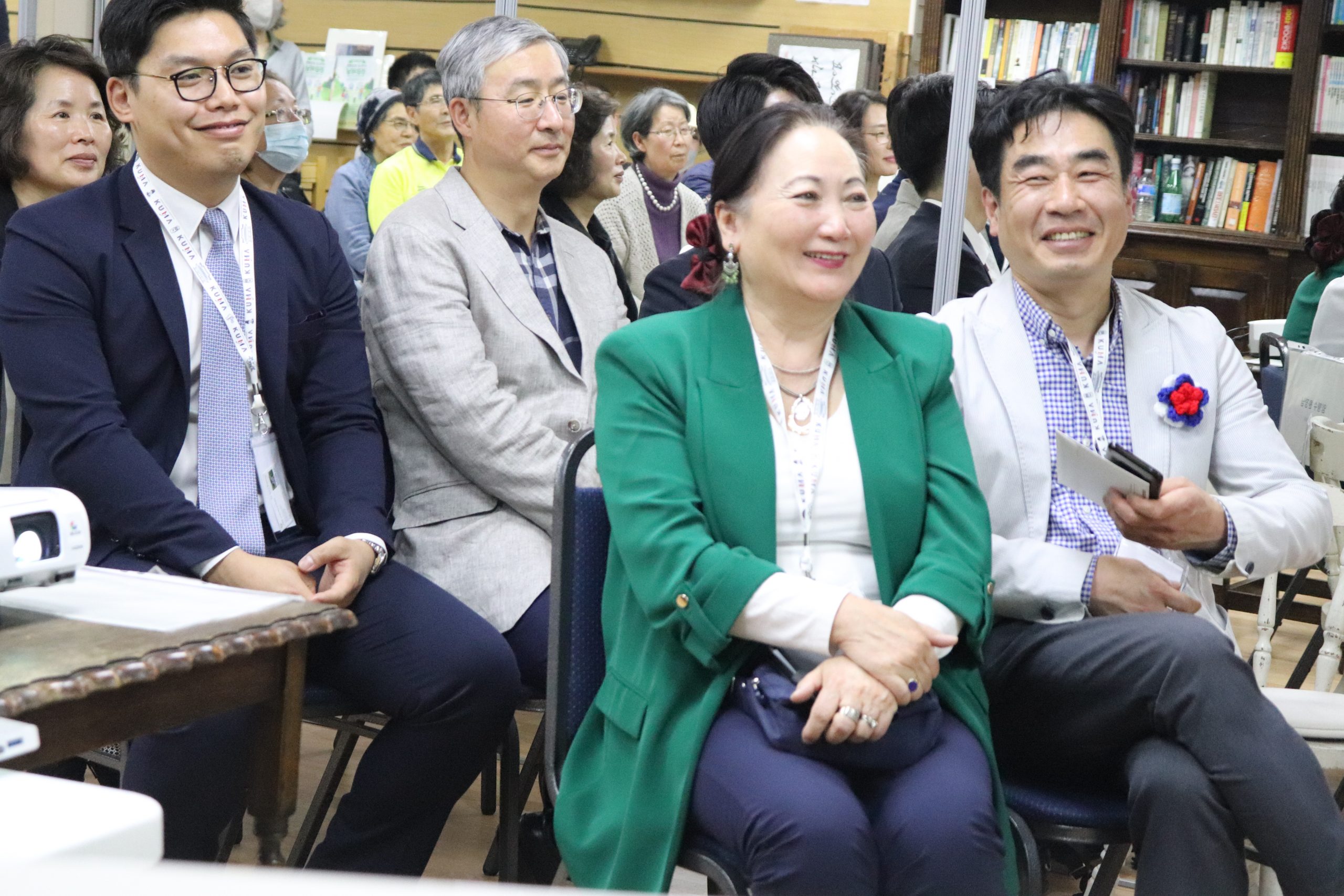
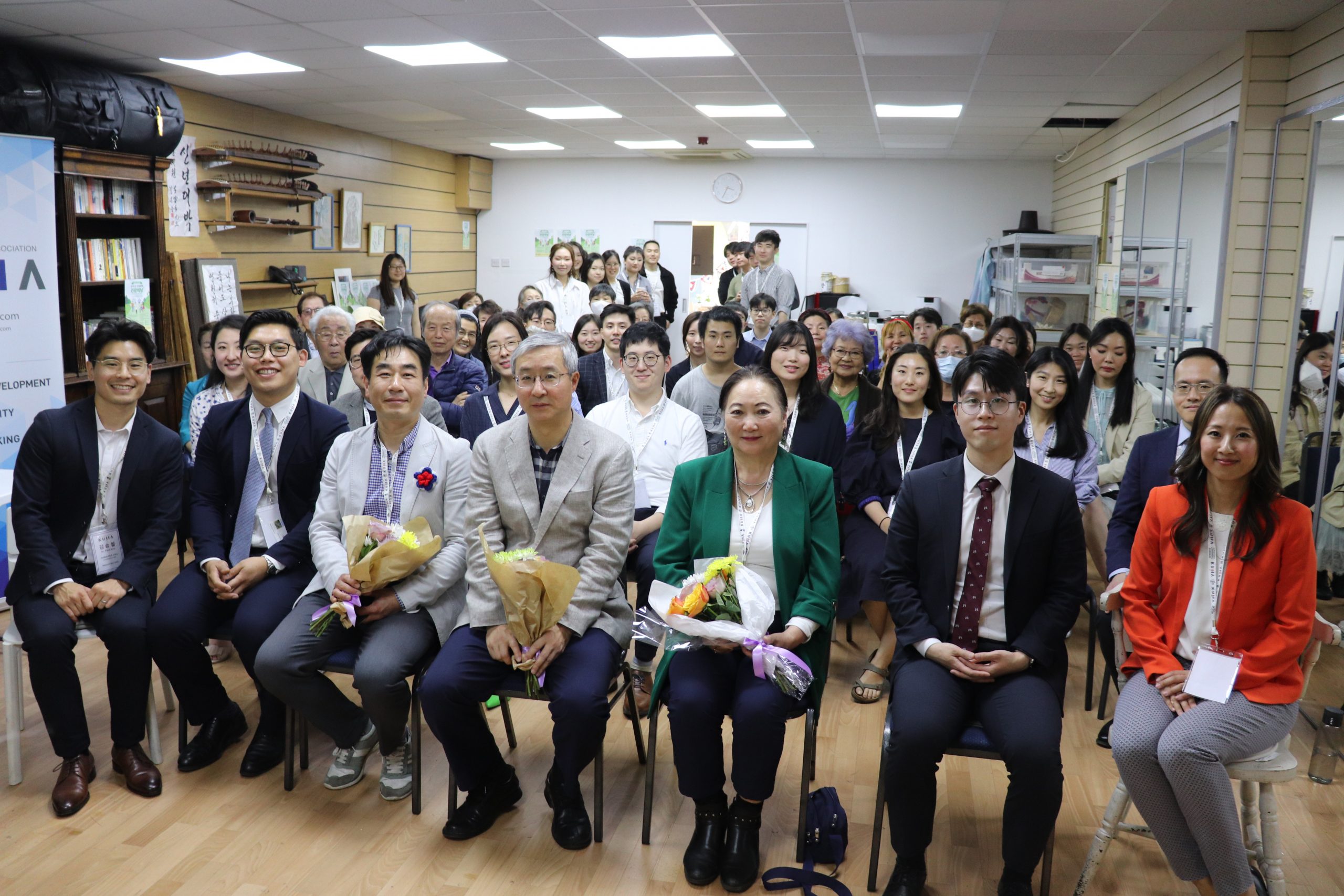
Following these presentations, the ‘health booths’ were set up. As aforementioned, these included a line-up of stations providing different health checks. These consisted of: blood pressure, blood glucose, BMI measurement, oxygen saturations, otoscopy and other booths where general advice was given (nutritional advice and guidance on navigating the NHS app). Each booth had at least one medical student to one doctor working co-operatively. I was assigned to the ‘oxygen saturation’ booth, which involved explaining what a pulse oximeter is, what exactly it measures, what normal saturation values are followed by the measurement of the attendee’s oxygen saturation level. Following this, the doctor would go on to explain the importance of monitoring oxygen saturation levels, with special consideration of age and the stresses brought by COVID-19. Working so closely, one on one, with a doctor is an infrequent and invaluable experience as a medical student. Directly observing the doctor’s calm and gentle manner when thoroughly explaining and exploring the patient’s concerns, I was able to learn a lot and was inspired to adopt the doctors’ mannerisms and utmost professionalism. It was refreshing and stimulating to see how these doctors interacted with patients and built good rapport by expressing their genuine interest and compassion.
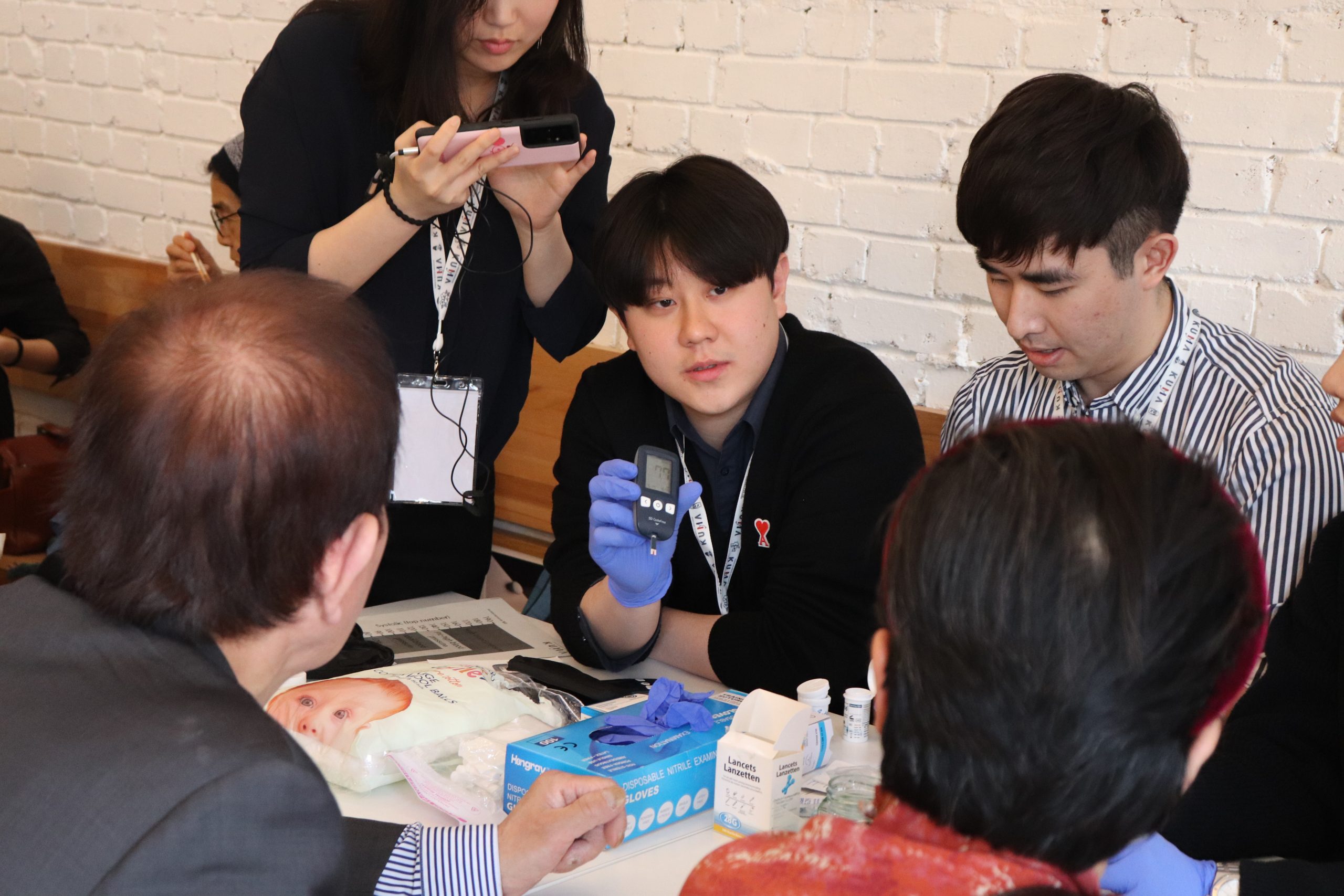
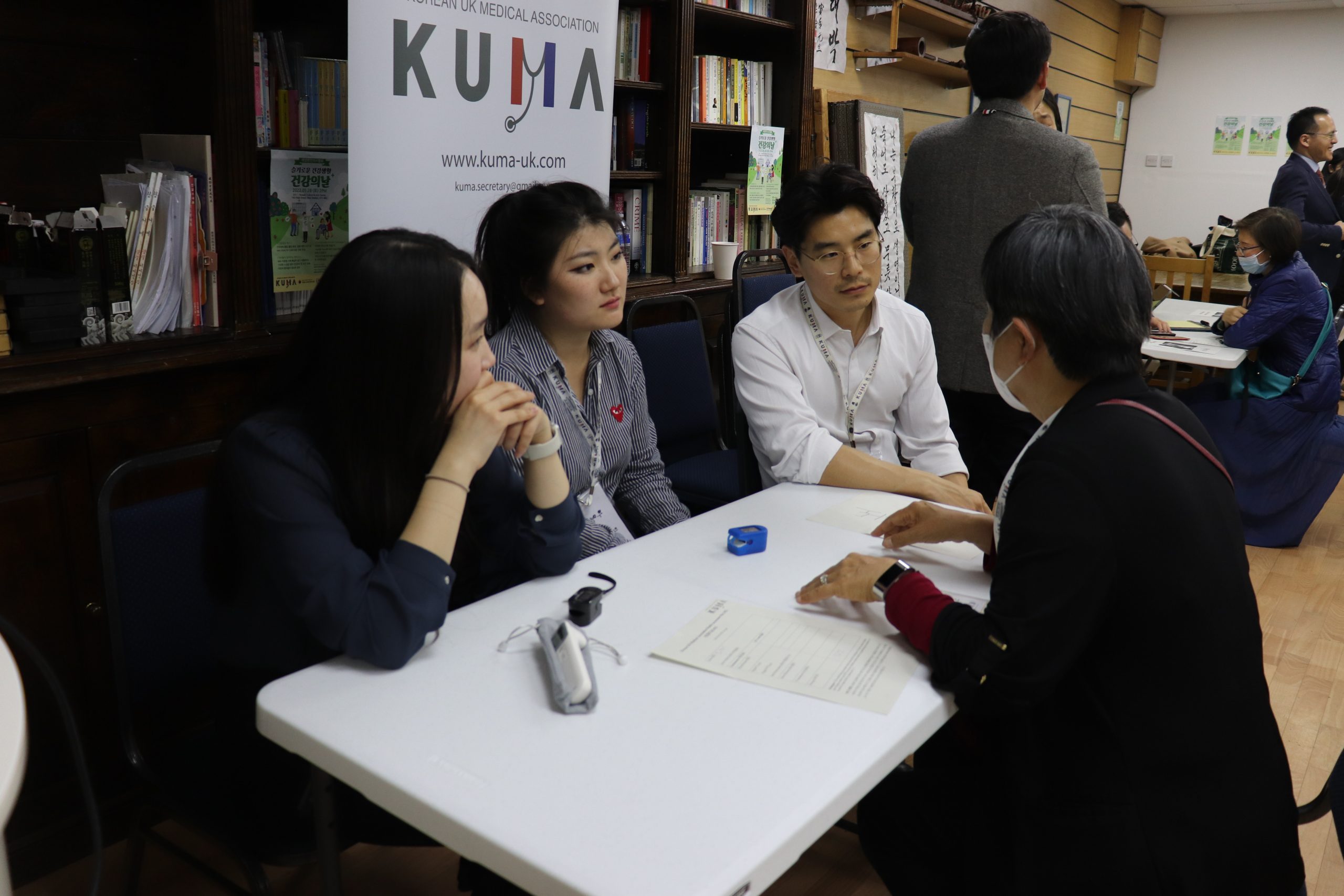
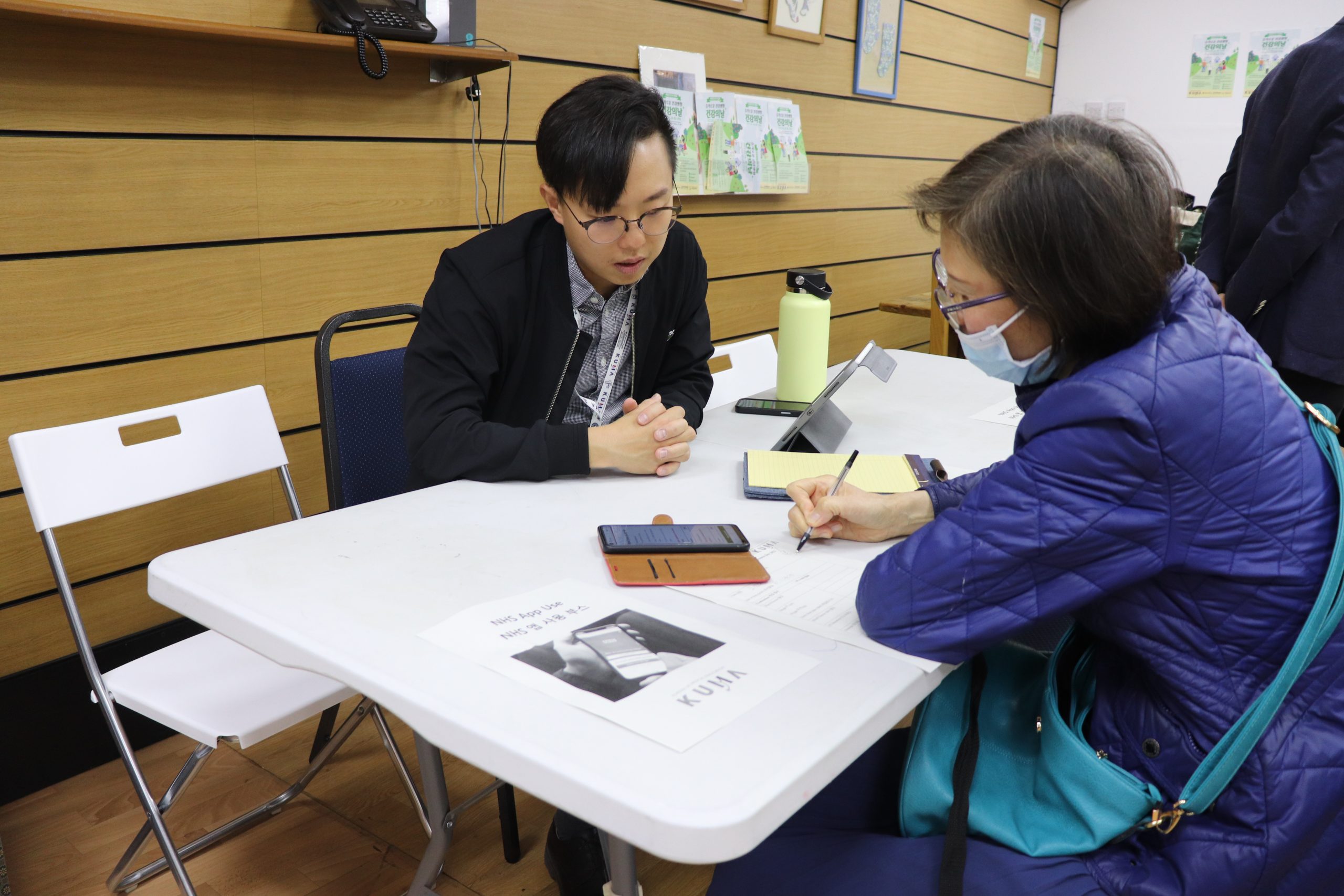
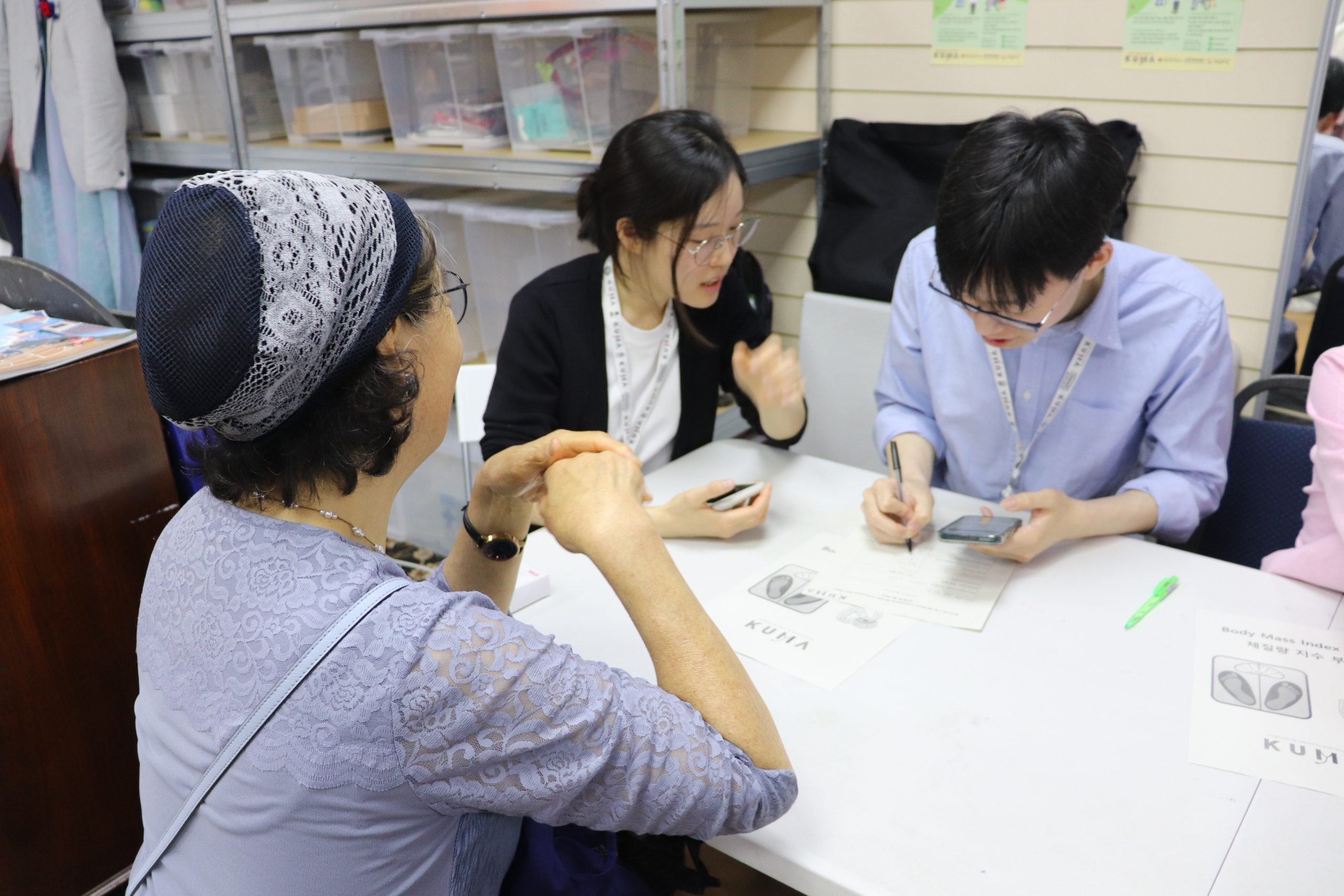
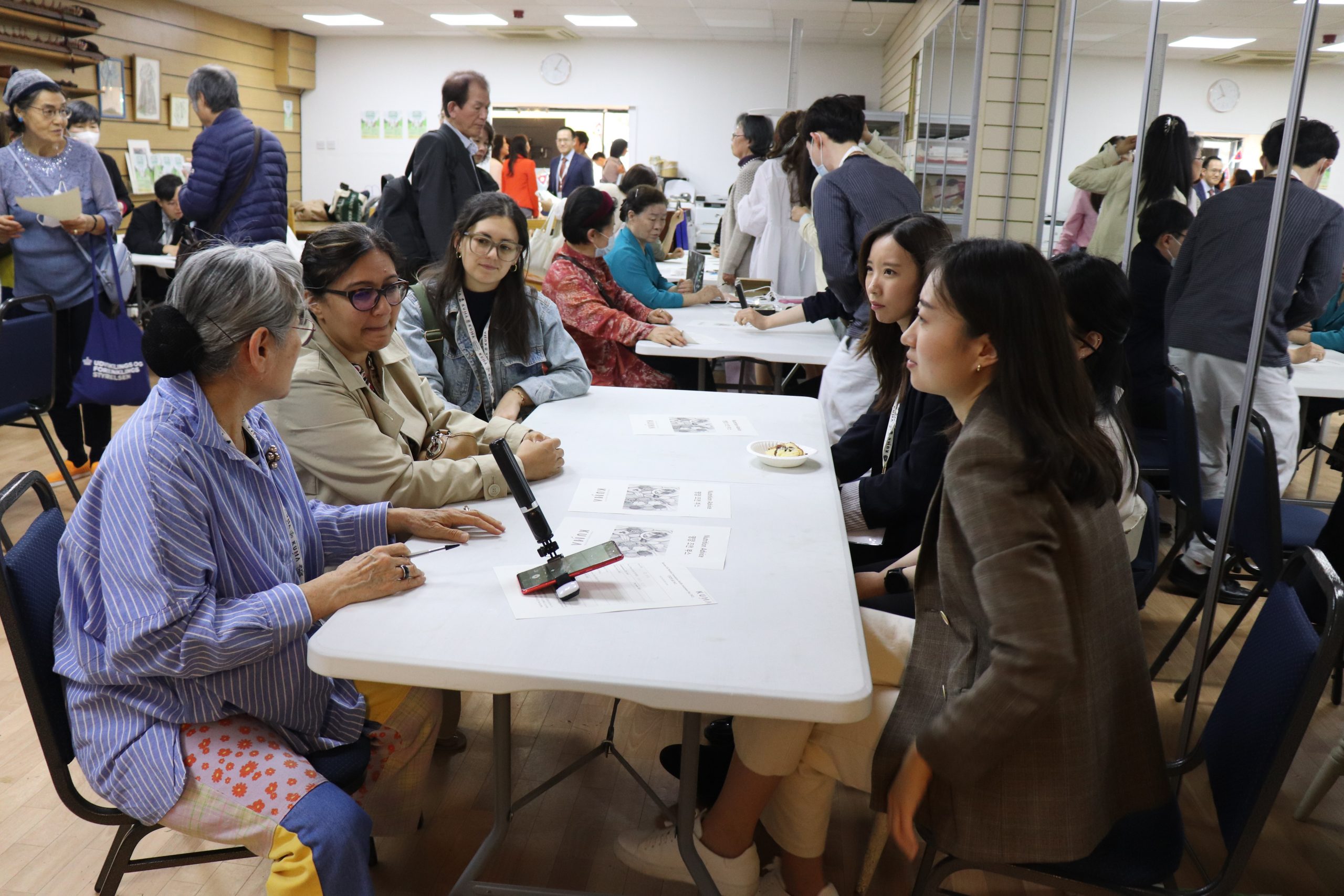
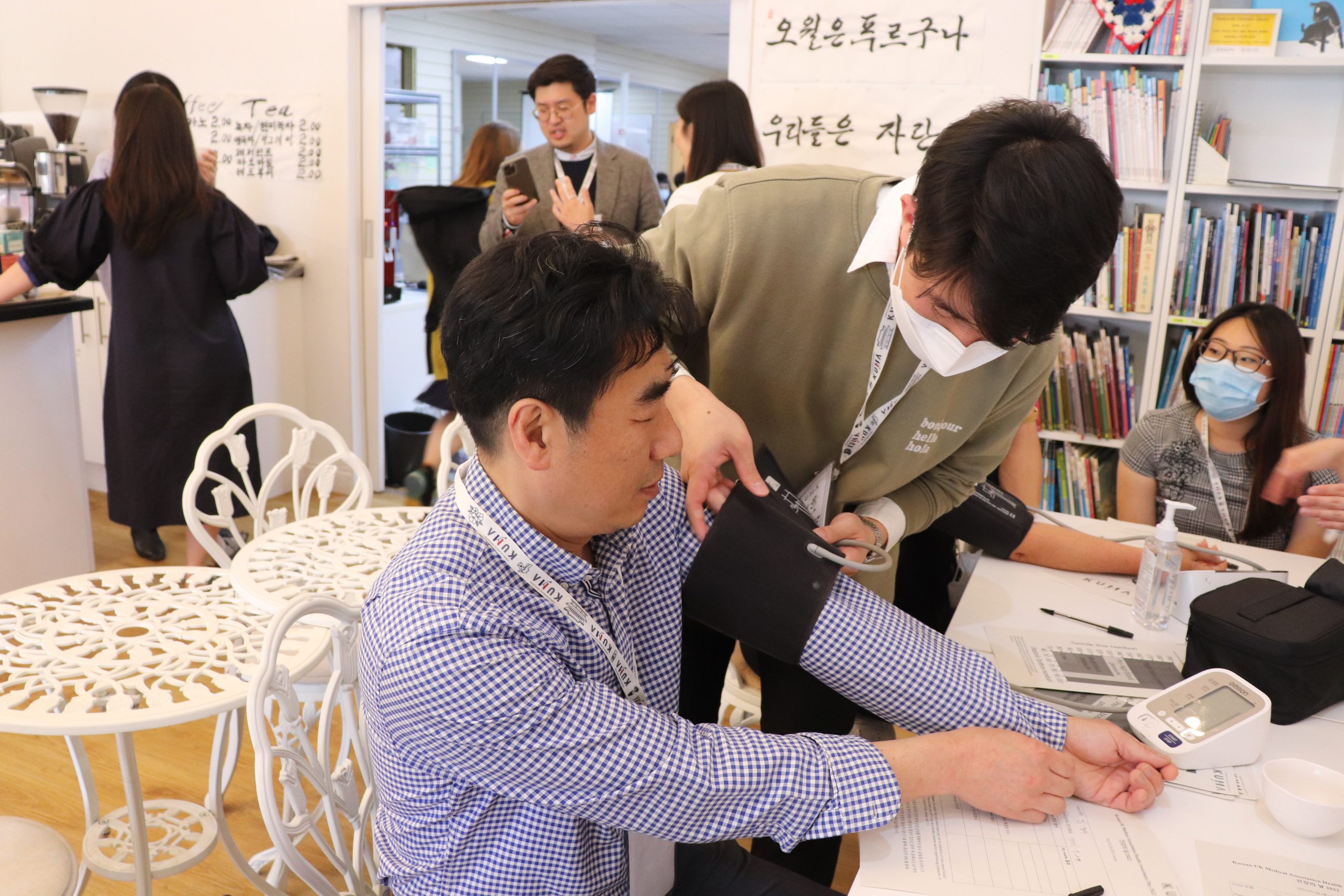
Talking to the senior Koreans filled me with a greater sense of wanting to give back to the elders of the population, particularly as I am aware of the various sacrifices many of them may have made to settle in the UK.
Additionally, the cultural aspect of HAD was clearly exhibited throughout the day. Many of the senior Korean population of England face a great barrier regarding the English language. Thus, on this day, we exclusively talked to the attendees in Korean, which was beneficial as it began to deal with one of the major obstacles to accessing healthcare. I also realised how this was beneficial for health professionals, as it was one of the only instances where I have ever used Korean in a clinical setting which enabled me to feel reconnected to my cultural origins. Many of the KUMA members and fellow students, including myself, are first generation Koreans. Talking to the senior Koreans who attended the event reminded me of my own parents and the difficulties they faced in engaging with NHS services. This filled me with a greater sense of wanting to give back to the elders of the population, particularly as I am aware of the various sacrifices many of them may have made to settle in the UK. As all KUMA participants were volunteers, I felt that HAD provided a great platform to begin to give back to this community.
In the debrief following the event, the feedback from attendees was overwhelmingly positive. I thought that this again exemplified the neglect many of the Korean population feel in terms of accessing health care, as ethnic minorities. There has been research conducted regarding the importance of health care organisations being both culturally and linguistically competent for the increasing minority populations.[1] In my opinion, this is an urgent issue that should be explored in depth and addressed formally, to hopefully find strategies to overcome such challenges.
All in all, from the perspective of a medical student, HAD was a helpful day as I was able to gain a wealth of information and resources as well as meet fellow students and doctors from an extensive number of specialties, all sharing the same cultural background. On top of this, I felt that it was an inspiring day, equally for students and doctors, as it contrasted greatly from the mundane day to day. The day served as an important reminder of how rewarding helping others can be, which, in my opinion, is the heart of what it means to be a doctor.
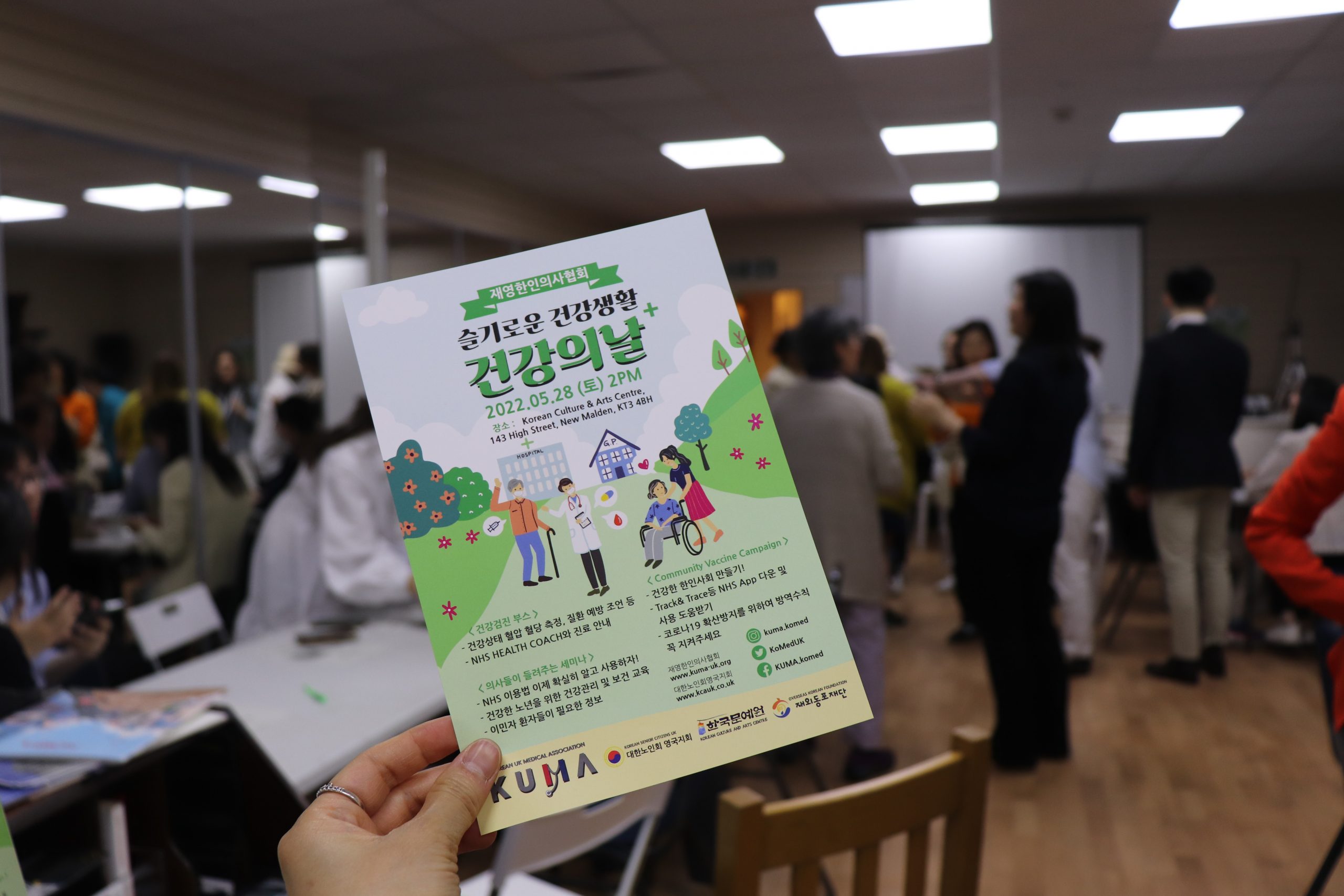
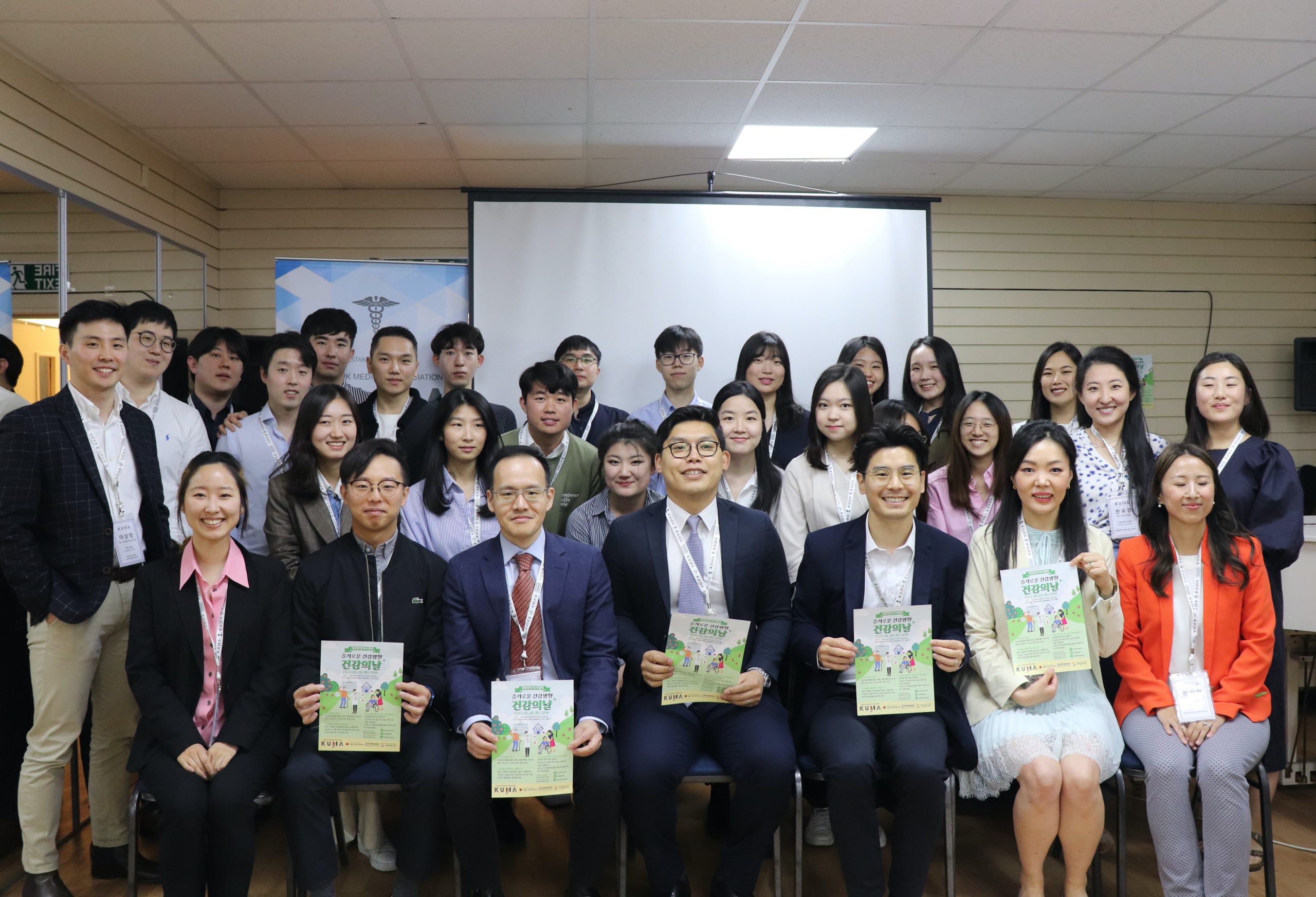
[1] Szczepura A. Access to health care for ethnic minority populations. Postgraduate Medical Journal. 2005;81(953):141-7.
~~~~~~~~~~~~~~~~~~~
Eunji Hong is a third year medical student at King’s College London, going on to intercalate at Imperial College London to study Cancer Frontiers iBSc. She is interested in Cancer and the implementation of Clinical Genetics however is also interested in Paediatrics and Neurology! In her spare time, she enjoys eating out, meeting friends and watching Netflix.
